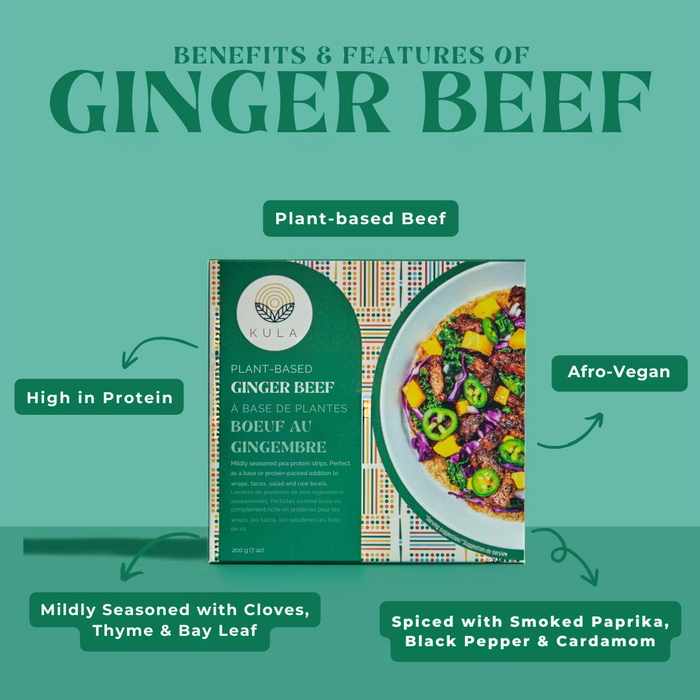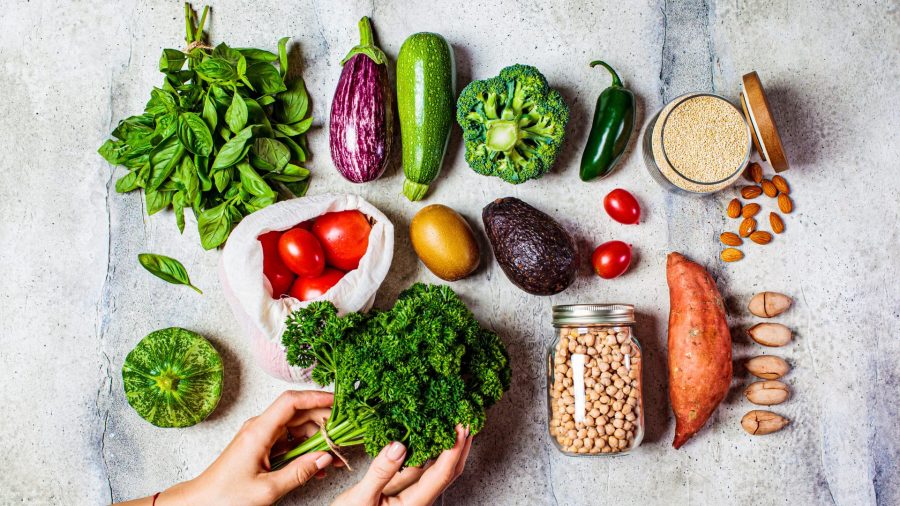Plant Based Chicken Meal Prep Ideas for Busy Professionals
Plant Based Chicken Meal Prep Ideas for Busy Professionals
Blog Article
Finding the Advantages of Plant Based Meals in Supporting Healthy And Balanced Food Choices
Plant-based meals use various advantages that can improve healthy and balanced eating behaviors. They focus on nutrient-dense active ingredients, adding to overall wellness. These meals are rich in important minerals and vitamins, which can cause enhanced power levels and food digestion. In addition, they play a considerable duty in weight monitoring and chronic illness prevention. The implications extend beyond individual wellness, touching on ecological sustainability. Exploring these facets discloses an engaging situation for incorporating extra plant-based foods right into daily diet plans.
Recognizing Plant-Based Diet Plans
What defines a plant-based diet regimen? A plant-based diet plan primarily is composed of foods originated from plants, including veggies, fruits, grains, nuts, and seeds. While it highlights plant foods, it is not necessarily vegetarian or vegan; some people may consist of percentages of animal items. The core principle rotates around prioritizing plant foods for their nutritional advantages and environmental sustainability. This diet regimen motivates the consumption of entire, minimally refined foods, often resulting in a raised intake of crucial nutrients. Additionally, plant-based consuming advertises culinary imagination, as individuals explore varied dishes and tastes. Inevitably, a plant-based diet can be adjusted to match different lifestyles and choices, making it an adaptable choice for those seeking to include more plant foods into their meals.
Health Benefits of Plant-Based Meals
A plant-based diet plan supplies a multitude of health advantages that can enhance total health. Research suggests that individuals following this diet regimen frequently experience lower risks of chronic diseases, such as cardiovascular disease, diabetes, and certain cancers cells. Rich in vitamins, antioxidants, and minerals, plant-based dishes support immune function and promote cellular health and wellness. These diet plans are normally high in dietary fiber, which aids digestion and helps preserve healthy cholesterol levels. The incorporation of whole foods, such as fruits, vegetables, legumes, and whole grains, contributes to improved energy degrees and psychological quality. Additionally, the anti-inflammatory properties found in many plant-based foods can assist lower swelling in the body, advertising better joint and cardiovascular health.
Effect On Weight Administration
The effect of plant-based dishes on weight monitoring can be substantial due to their nutrient density and reduced calorie consumption. These dishes frequently give vital minerals and vitamins while minimizing vacant calories, promoting much healthier consuming routines. Because of this, individuals may find it easier to shed or keep weight via a plant-based diet plan.
Nutrient Thickness Advantages
While lots of diet plans concentrate on calorie constraint, the principle of nutrient thickness supplies a much more all natural method to weight management. Nutrient-dense foods are abundant in vitamins, minerals, and antioxidants while being lower in calories. This enables individuals to eat bigger parts without exceeding their caloric requirements. Plant-based dishes, which often consist of fruits, veggies, entire grains, and beans, exemplify nutrient density. These foods not only sustain weight management however also advertise satiety, lowering the chance of overeating. Furthermore, a high intake of nutrient-dense foods can cause enhanced metabolic health, as they supply the essential nutrients for peak physical feature. Eventually, focusing on nutrient density can facilitate healthier consuming patterns and add to lasting weight monitoring approaches.
Lowered Caloric Consumption
Decreased caloric intake plays a significant function in effective weight monitoring, as it directly influences a person's energy balance. Plant Based Beef. Plant-based dishes are normally reduced in calories while being rich in vital nutrients, making them a perfect choice for those seeking to lower caloric intake without compromising nourishment. By incorporating more fruits, vegetables, whole grains, and legumes, individuals can appreciate larger part dimensions that promote satiation. This technique not only help in weight-loss but also fosters sustainable consuming practices. Furthermore, plant-based diet regimens frequently minimize the consumption of refined foods high in included sugars and unhealthy fats, which can add to excess caloric intake. Ultimately, a concentrate on plant-based meals can sustain much healthier weight management techniques and long-term health
Lowering the Danger of Persistent Illness
Including plant-based meals into one's diet regimen can significantly reduce the risk of persistent conditions. Countless researches demonstrate that diets rich in fruits, veggies, whole grains, and beans are related to lowered incidences of heart problem, diabetic issues, and particular cancers cells. The high fiber material of plant-based foods adds to far better digestion wellness and boosted cholesterol levels, while phytochemicals and anti-oxidants discovered in these foods may assist battle swelling and oxidative tension. Furthermore, plant-based diet plans are commonly lower in saturated fats and cholesterol, further promoting cardiovascular wellness. By focusing on plant-based alternatives, people can improve their general well-being and develop a much healthier way of living that minimizes the likelihood of establishing chronic health issues, thereby promoting a much more durable body.
Environmental Sustainability of Plant-Based Consuming
Exactly how can plant-based consuming add to environmental sustainability? Changing to a plant-based diet plan considerably minimizes the ecological influence connected with food production. Livestock farming is a leading reason for deforestation, greenhouse gas emissions, and water depletion. By consuming extra plant-based foods, individuals can decrease their carbon impact and save natural sources. Additionally, plant-based diets typically need much less energy and land compared to meat manufacturing, making them a more sustainable option. The growing of crops for direct human intake is normally extra efficient, as it removes the need for feed conversion. By browse this site adopting plant-based eating practices, culture can advertise biodiversity, minimize environment modification, and promote a healthier world for future generations. Eventually, this modification supports both human health and environmental sustainability.
Easy Ways to Include Plant-Based Foods
Embracing a plant-based diet plan not only benefits the environment but likewise uses many possibilities for individuals to enhance their day-to-day meals. One reliable means to start is by slowly changing pet items with plant choices, such as making use of almond milk instead of dairy. Including a lot more veggies into different recipes can likewise be transformative; adding spinach to shakes or utilizing cauliflower rice can raise meals. Planning once a week food selections that highlight legumes, grains, and seasonal fruit and vegetables advertises selection and reduces anxiety during dish prep work. Furthermore, exploring neighborhood farmers' markets can inspire creative thinking and supply fresh components. Basic changes, like going with whole grain bread or trying plant-based snacks, can make a considerable influence on healthier consuming routines while promoting a higher recognition for plant foods.
Delicious Plant-Based Dish Ideas to Attempt

Checking out delicious plant-based dish concepts can boost one's culinary experience while advertising wellness - Plant Based Chicken. Quick and simple recipes featuring nutrient-packed components supply a range of options for active timetables. Additionally, flavorful international dishes can introduce interesting tastes and appearances to plant-based eating
Quick and Easy Recipes
Lots of individuals seeking much healthier food choices are transforming to simple and fast plant-based recipes that accommodate a variety of preferences and way of lives. These dishes usually focus on very little preparation time, making them obtainable for busy schedules. Easy options such as quinoa salads, vegetable stir-fries, and chickpea wraps can be prepared in under half an hour, enabling nourishing dishes without comprehensive cooking. Components like fresh vegetables, vegetables, and entire grains offer as the foundation for these dishes, using flexibility and flavor. In addition, numerous fast dishes can be personalized to match individual preferences, making it simple to incorporate seasonal fruit and vegetables or favored flavors. This strategy not only advertises much healthier eating practices yet likewise urges creativity in the kitchen.
Nutrient-Packed Active ingredients
Nutrient-packed ingredients act as the foundation for scrumptious plant-based dishes special info that not just please the taste buds however additionally support general health. Whole grains, such as quinoa and brown rice, supply crucial fiber and healthy protein, while vegetables like chickpeas and lentils supply abundant sources of iron and folate. Including vibrant vegetables, such as kale, spinach, and bell peppers, improves meals with vitamins A, C, and K. Nuts and seeds contribute healthy fats, antioxidants, and additional healthy protein, making them ideal for treats or toppings. Fruits, whether fresh or dried out, include natural sweet taste and critical nutrients. By creatively incorporating these ingredients, people can discover a selection of satisfying and nutrient-dense meals that promote health and preserve power degrees throughout the day.
Flavorful International Dishes
What makes international cuisine so enticing is its ability to showcase diverse flavors while accepting plant-based components. From the vivid flavors of Indian chickpea curry to the fresh natural herbs of a Mediterranean tabbouleh, plant-based dishes provide a global tapestry of tastes. Thai environment-friendly curry, abundant with coconut milk and various vegetables, sticks out for its aromatic mix. Meanwhile, the great smoky notes of a Mexican black bean taco, topped with avocado and salsa, give a satisfying experience. Japanese ramen can be changed with miso-based brew and a variety of vegetables for a hearty dish. These instances illustrate just how worldwide dishes can inspire scrumptious, health-conscious eating, highlighting the convenience of plant-based ingredients in cooking traditions worldwide.
Frequently Asked Questions
What Prevail Misunderstandings Regarding Plant-Based Diet Regimens?
Common misunderstandings about plant-based diet plans include beliefs that they lack enough healthy protein, are excessively limiting, or are pricey - BBQ Sauces. Several likewise mistakenly presume that plant-based eating is not ideal for any age groups or lifestyles

Just how to Transition to a Plant-Based Diet Plan Gradually?
To shift to a plant-based diet progressively, one ought to begin by incorporating even more plant foods into dishes, replacing animal items slowly, explore new dishes, and concentrating on entire foods to guarantee balanced nutrition.
Are Plant-Based Meals Costly to Prepare?
The concern of whether plant-based dishes are expensive often arises. While some ingredients can be pricey, lots of inexpensive choices exist. With mindful planning and seasonal choices, preparing healthy plant-based dishes can be budget-friendly.
Can Children Thrive on a Plant-Based Diet?
The concern of youngsters's flourishing on a plant-based diet regimen has amassed attention. Research indicates that with proper planning, kids can satisfy dietary needs and prosper, gaining from varied nutrients discovered in fruits, veggies, and whole grains.

What Are the Ideal Resources of Healthy Protein in Plant-Based Meals?
The very best resources of protein in plant-based meals consist of legumes, beans, lentils, quinoa, tofu, tempeh, nuts, and seeds. These alternatives provide necessary amino acids needed for growth, maintenance, and overall health and wellness without animal products. Rich in minerals, anti-oxidants, and vitamins, plant-based meals sustain immune function and promote cellular health. Integrating plant-based meals right into one's diet can substantially reduce the risk of persistent diseases. Accepting a plant-based diet plan not only benefits the setting yet also provides countless opportunities for individuals to boost their day-to-day dishes. Discovering tasty plant-based meal concepts can raise one's culinary experience while promoting health a knockout post and wellness. Nutrient-packed ingredients serve as the foundation for delicious plant-based dishes that not only please the taste buds but likewise support total health and wellness.
Report this page